What can Kissinger's visit to China achieve?
Veteran diplomat and centenarian Henry Kissinger visited China this week, meeting Chinese President Xi Jinping and other top officials. But amid the ongoing US-China tussle, can a civilian, even someone as seasoned as Kissinger, make much of an impact?
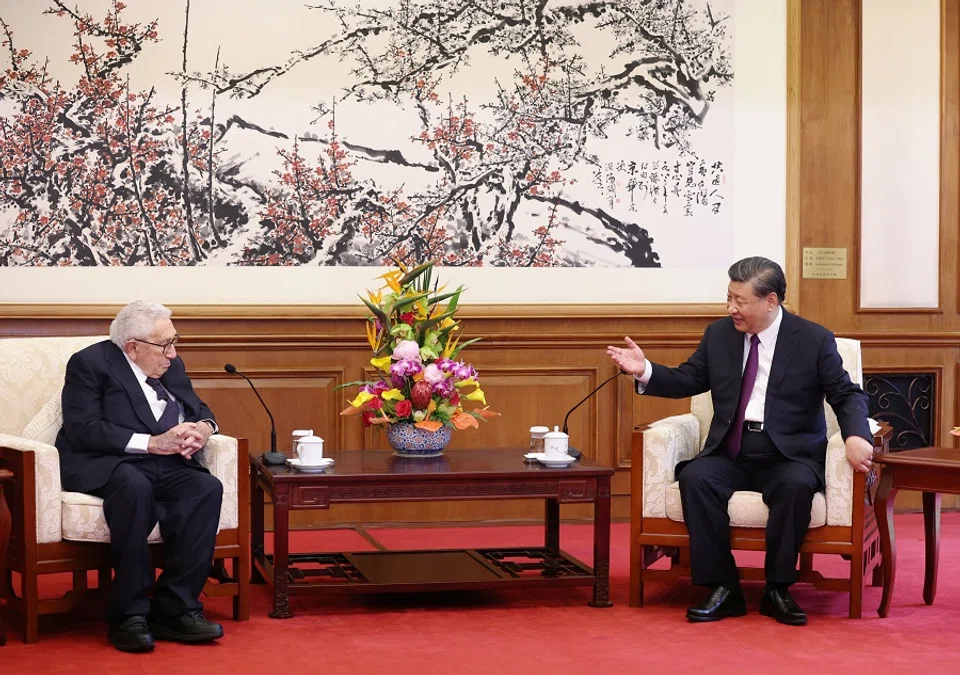
The unexpected visit by legendary diplomat and centenarian Henry Kissinger to Beijing this week has gained considerable attention from both international media and the Chinese public.
Within just one month, four current and former US officials have gone to China, and each seems older than the last: Secretary of State Antony Blinken, Secretary of the Treasury Janet Yellen, special presidential envoy for climate John Kerry, and now Kissinger. Many Chinese are moved by Kissinger's commitment to promote the improvement of China-US relations, even at his advanced age. Some Chinese friends marvelled: "The man is 100 years old and still flying to Beijing..."
Today, Kissinger has been out of the political arena for years, and his influence on the Biden administration is limited.
Visit amid tense atmosphere
In the West, Kissinger is described as the US diplomat who knocked on China's door. However, compared with his visit to China more than 50 years ago, which paved the way for the establishment of China-US diplomatic relations, the symbolic significance of Kissinger's current trip may outweigh its practical significance. It has also become more difficult to bridge the misunderstandings between the two countries.
At the time, the US was deeply embroiled in the Vietnam War and eager to withdraw, while China-Soviet relations were deteriorating. Both China and US leaders hoped to normalise bilateral relations by shelving their differences. It was in this context that Kissinger visited China, under secret orders by President Richard Nixon.
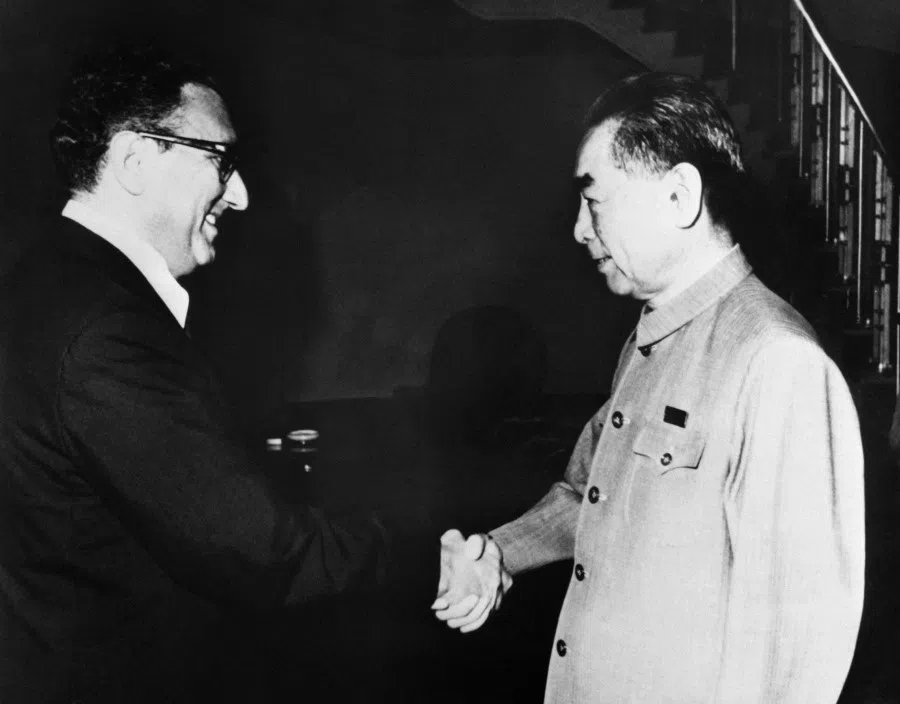
Today, Kissinger has been out of the political arena for years, and his influence on the Biden administration is limited. He even needs to repeatedly speak out in public forums, such as in March this year when he warned that if a "second Cold War" were to break out, it could overthrow civilisation, if not destroy it altogether.
Currently, there seems to be frequent contact between high-level officials from China and the US, but mutual doubts and suspicions persist. There are examples to show that the US lacks the motivation to mend bilateral relations, while China lacks confidence in the sincerity of the US, as there are several instances of the US saying one thing during meetings but behaving differently afterwards. Also, China and the US both claim not to seek decoupling, but are seemingly taking steps towards it.
The US has not loosened economic and technological restrictions on China, and the Biden administration has not yet lifted the additional tariffs on Chinese goods imposed by the previous Trump administration. There are also rumours that the US is considering expanding restrictions on the export of advanced semiconductor chips to China. On 19 July, Chinese ambassador to the US Xie Feng publicly warned that China will definitely retaliate.
Amid this atmosphere, what role can a civilian like Kissinger play by visiting China?
China welcoming its 'old friend'
One highlight was Kissinger's meeting with Chinese Minister of National Defense Li Shangfu, who is under US sanctions. As the US is reluctant to lift the sanctions, communication and meetings between the defence ministers of the two countries have been interrupted, and resuming military dialogue is a matter of urgency for the Biden administration.
China's enthusiastic reception of Kissinger sent a strong signal that it still hopes that China-US relations can get back on track and that it has not forgotten the "old friend" who played a key diplomatic role in normalising ties between China and the US.
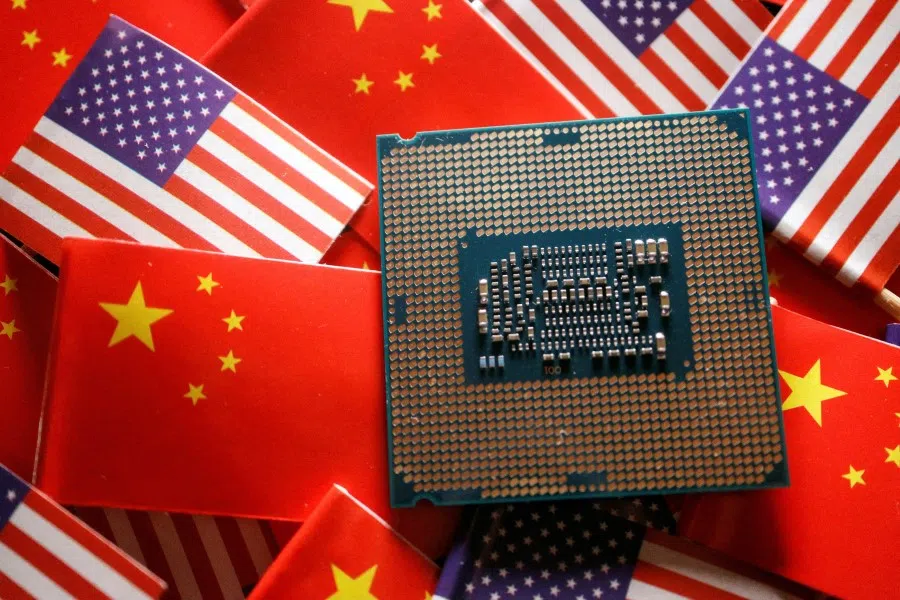
Previously, Kissinger rarely met with defence ministers during his visits to China, and it is believed that he had initiated the meeting with Li this time. Analysts speculated that Kissinger was attempting to persuade Li to resume military dialogue with the US.
Meanwhile, China's enthusiastic reception of Kissinger sent a strong signal that it still hopes that China-US relations can get back on track and that it has not forgotten the "old friend" who played a key diplomatic role in normalising ties between China and the US. However, Beijing will remain firm on issues of principle and core interests such as Taiwan, and Li will not meet with the officials who sanctioned him.
After meeting with Li and Chinese Communist Party Politburo member and Director of the Office of the Central Commission for Foreign Affairs Wang Yi, Kissinger met with China's top leader, President Xi Jinping, on 20 July.
By meeting at a historic site, the Chinese side hopes that the US will also view China-US relations through the long view of history...
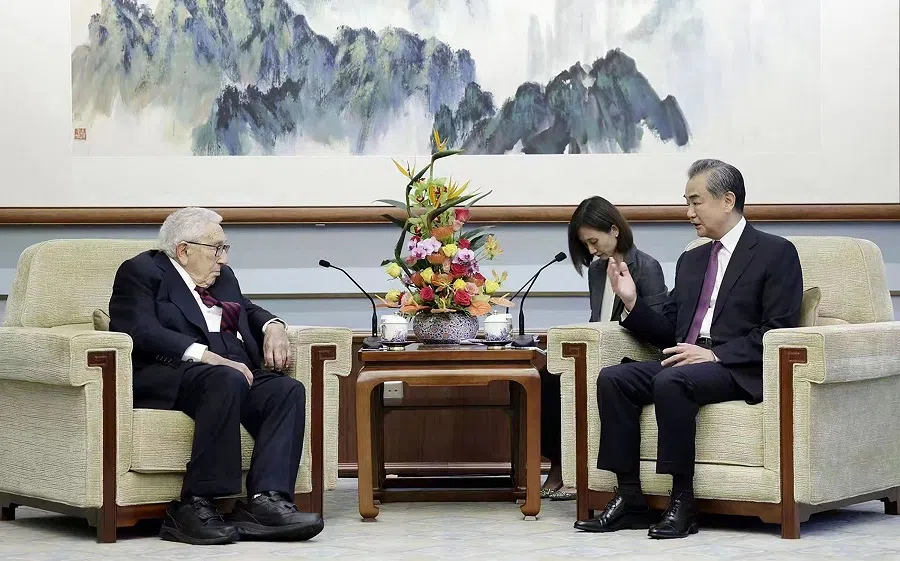
Based on past records, Xi and Kissinger met several times before the pandemic, including in 2013, 2015, 2016, 2018 and 2019. The pair almost always met in the Fujian Room of the Great Hall of the People in Beijing, where then Chinese Premier Zhou Enlai had met with Kissinger on the second day of the latter's secret trip to China in 1971. Since 52 years ago, Chinese leaders would often meet with senior US officials in the familiar Fujian Room, and used the venue to convey to them that consensus on the Taiwan issue is the basis for the establishment of diplomatic relations between China and the US.
This time, on 20 July, Xi met Kissinger at Villa 5 of the Diaoyutai State Guesthouse, where Kissinger had stayed during his secret trip to China, and a Chinese painting depicting plum blossoms blooming in winter can be seen hanging in the background.
A trip remembered in history
Kissinger understood Beijing's arrangement immediately, and thanked Xi for meeting him at Villa 5 of the Diaoyutai State Guesthouse, where he met Chinese leaders for the first time.
By meeting at a historic site, the Chinese side hopes that the US will also view China-US relations through the long view of history, that is, what Xi calls "strategic vision" and what Wang Yi refers to as "diplomatic wisdom" and "political courage" - being unafraid of obstacles and not being tied down by short-term political interests to improve China-US relations.
... while the US does not want China-US relations to turn sour, it does not need the relationship to be fantastic either.
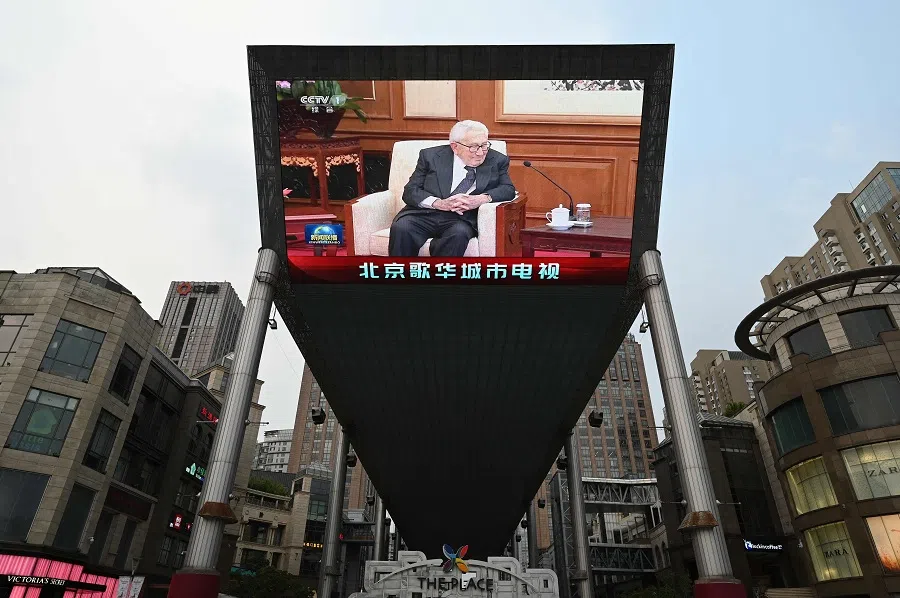
However, it is unlikely that today's US will perceive it from this perspective because US officials and the US as a whole have nothing substantial or crucial to gain from the improvement of China-US relations. Thus, while the US does not want China-US relations to turn sour, it does not need the relationship to be fantastic either. In this sense, the US is just building guardrails for the sake of building them.
And China knows this for a fact too; China-US relations have been reduced to a tool and bargaining chip in the US bipartisan struggle. Although mutual cooperation between China and the US could lead to mutual benefits and win-win situations, the US is unable to see how China's rise can benefit America's core interests.
Perhaps someday, under different challenges or pressures, there will be an opportunity to achieve a real improvement of China-US relations, but that will not happen now. Thus, apart from conveying a message when he returns to the US, Kissinger's visit to China is but of symbolic significance and a trip that would be remembered in history.
This article was first published in Lianhe Zaobao as "百岁老人基辛格访华能化解什么".
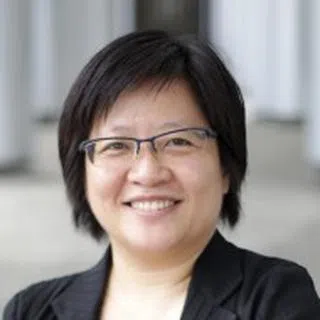


![[Big read] When the Arctic opens, what happens to Singapore?](https://cassette.sphdigital.com.sg/image/thinkchina/da65edebca34645c711c55e83e9877109b3c53847ebb1305573974651df1d13a)
![[Video] George Yeo: America’s deep pain — and why China won’t colonise](https://cassette.sphdigital.com.sg/image/thinkchina/15083e45d96c12390bdea6af2daf19fd9fcd875aa44a0f92796f34e3dad561cc)
